Get Familiar: Abdulla Rashim
Abdulla Rashim is mysterious and exciting in equal measure. In a rare interview, XLR8R discovers why.
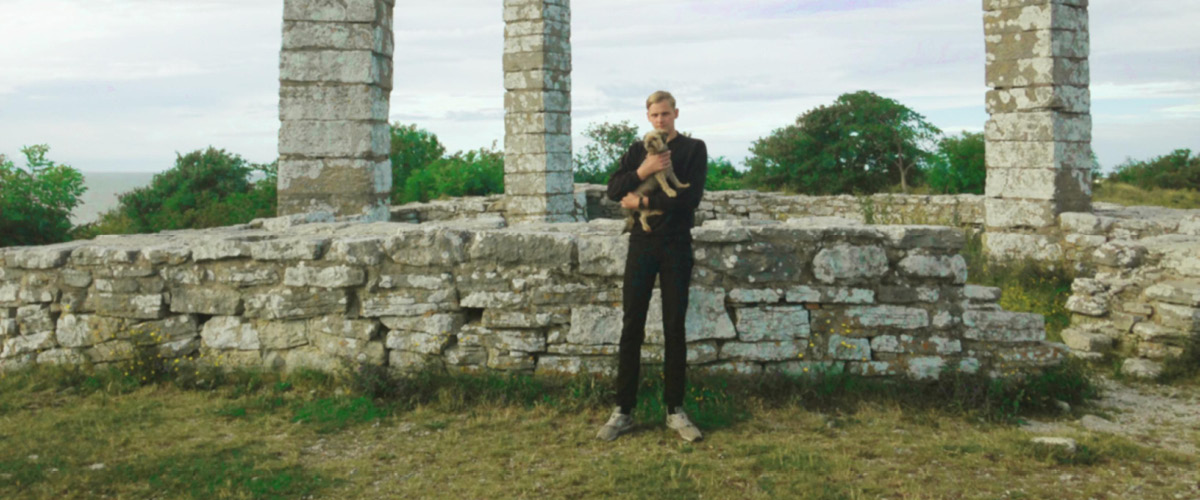
Get Familiar: Abdulla Rashim
Abdulla Rashim is mysterious and exciting in equal measure. In a rare interview, XLR8R discovers why.

Sweden’s Abdulla Rashim is mysterious and exciting in equal measure. Since taking on the Abdulla Rashim moniker just three short years ago, the DJ-producer has launched two highly respected labels and released on numerous other. His sound is a deeply textured strain of techno, but to leave it at that would be doing him a disservice. Ahead of his performance at this year’s Into The Valley festival, XLR8R’s Luke Cheadle dialed up the artist behind the name to Get Familiar with Abdulla Rashim. Further to the interview, Rashim provided us with an hour-long mix that can be downloaded via WeTransfer at the bottom of the article.
Abdulla Rashim is a product of his surroundings: growing up in the idyllic-yet-melancholic city of Stockholm, Sweden, both his personality and musical persona have always hung in the shadows, steering away from the limelight and any recognition in favor of a localised life of sound and music. Still, today, his real name is not known to many. If you were to type his alias into Google, you’d find scarce snippets of information, fragments pieced together from release linear notes and the limited PR released. It seems, from the outside, that Rashim was birthed from thin air, a shadowy techno purist with a steadily rising and highly-enviable back catalog. But for the artist behind Abdulla Rashim, the “faceless” techno image was a by-product of a desire to remain nameless, something founded upon his wishes to avoid his life outside of music being dragged across the coals of cyber-space.
Dig into Rashim’s artistic identity and it becomes apparent that everything is organic; nothing is forced and everything happens, and has happened, quite naturally. It’s with this nonchalant intention that he has quietly released some of the most in-demand and talked-about techno of recent times. It was his eponymous label [Abdulla Rashim Records] that gave listeners their first taste of his work in 2011 with Gizaw, a raw and energetic EP that piqued not only his audience’s ears, but also the interest of two of techno’s most desirable imprints: Prologue and Semantica. Rashim would go on to release powerful records on both seminal labels, cementing his name as techno’s one-to-watch in a very short time.
Since then, Rashim has aimed to release music from friends and like-minded artists, although he soon came to realise that nothing would land on the label from a source other than himself. It was around this time that Rashim had a chance encounter—and built a subsequent friendship—with Jonas Rönnberg (a.k.a. Varg), a relationship that gave birth to the Northern Electronics imprint. With the label as the hub, and with the help of designer and close-friend Jonas Bard (Böfüms), Rashim and Rönnberg have carved a stark image for themselves and the artists they have presented—a long and growing list that includes, among others, Acronym, SARS, Dorisburg, and Korridor.
The label would quickly rise to be among the finest in techno circles, and it was via this widely-acclaimed platform that Rashim would release his long-awaited debut album, Unanimity, and then its follow-up, A Shell of Speed. Both LPs extended what we already knew of Rashim’s sound with cohesive collections of highly-textured, rhythmically-perplexing cuts presented in fresh and exciting ways.
The further you dig into Rashim’s artistic core the more it becomes obvious that the output of ideas doesn’t stop at the endlessly-woven kaleidoscopic techno under his artist name. As Ulwhednar, alongside Varg, he crafts hazy, wind-licked ambience, with his Lundin Oil project burying even deeper into found sound manipulation and experimental textures.
In short, Abdulla Rashim is a slowly-unfolding musical enigma, an anonymous artist that has presented his sonic persona via an intriguing and ever-evolving catalog of releases. But other than the labels and the records releases, there is little else known. After an extensive dig, XLR8R dialed up Rashim in his Stockholm base to peel back the covers and find out a little more.
Where did you grow up and what were your earliest memories of music?
Well, I grew up in Stockholm. I wasn’t really interested in music until quite late in my life; most of the stuff that I listened to were things that friends showed to me. I was lucky that they had pretty good taste because I realised that some of the stuff that they showed me when I was younger are things I can still listen to now. We always had good music coming from Sweden and a lot of the stuff I listen to now is Swedish music. It feels like Sweden has always had a lot to give—in the last 20 years that is; I’m not really interested in the older stuff. There was a strong scene in Gothenburg about 10 years ago and that had a big impact on me. My friends and I were very much into the music that was coming from there at that time.
What music was that?
There was a record label called Sincerely Yours that was run by two guys that had a band called The Tough Alliance; and also, before that, there was an indie pop band called Broder Daniel. All of those artists, not so much the former [The Tough Alliance] but the earlier pop artists of the ‘90s, they all seemed to play in each other’s bands and they were all friends and I think that flowed to the new generation—Sincerely Yours had a lot of good artists all gathered together and on the same label. The Tough Alliance especially made a big impact on me. They had a strong aesthetic and they would do these playback concerts where they would just stand on stage with drumsticks or baseball bats and just fool around while the music was playing in the background.
Almost like performance art?
Yeah, exactly. I mean, I didn’t know much about that at that point but I learnt more from reading what people were writing about them which made me understand what they were doing—they had a lot of strong ideas that they communicated. I had friends that had met them at that point too. It was funny, it wasn’t like they were anonymous or anything, but their personalities were really hard to figure out and understand who they really were.
What sort of music were they playing?
It was pure pop music. I don’t know, I’ve always found it hard to describe music. Some people are very good at it but I’m not. But it was catchy electronic pop music.
Were you travelling to see these guys?
I only saw them twice, I think. They rarely played and when they played in Stockholm I was too young to go to see them because they played in a bar or club. So I only saw them at festivals around Sweden.

How old were you at this point?
Well, this was just before I got into electronic dance music, so I would have been 17.
Did this have an impact on you constructing your Abdulla Rashim moniker and image?
I’m not sure, maybe it did have. Not in a direct sense but I knew I didn’t want to use my own name—the internet is a scary place.
“I mean, it’s easy to say that being who I am and being able to choose that, but I never wanted success or anything like that. I just wanted to be myself. I just felt really uncomfortable with using my own name, or even taking pictures.”
Have you had any bad experiences online—or is it just the idea of the internet in a more general sense?
I have never had any bad experiences or anything like that—well, not personally, anyway. It just feels very exposed and I never wanted to be somebody in the limelight; instead, I always wanted to stay away from it all. I mean, it’s easy to say that being who I am and being able to choose that, but I never wanted success or anything like that. I just wanted to be myself. I just felt really uncomfortable with using my own name, or even taking pictures.
Where did Abdulla Rashim come from?
Abdulla Rashim is a name I made up out of a long interest for the Arab world, in particular Levantine culture and politics. I’ve been studying Arabic at the University and I follow Al-Jazeera as close as Swedish news. I’m aware of how problematic this choice of name can be, the controversies surrounding it, and I know that it can be perceived as another brick in this exotifying culture we live in.
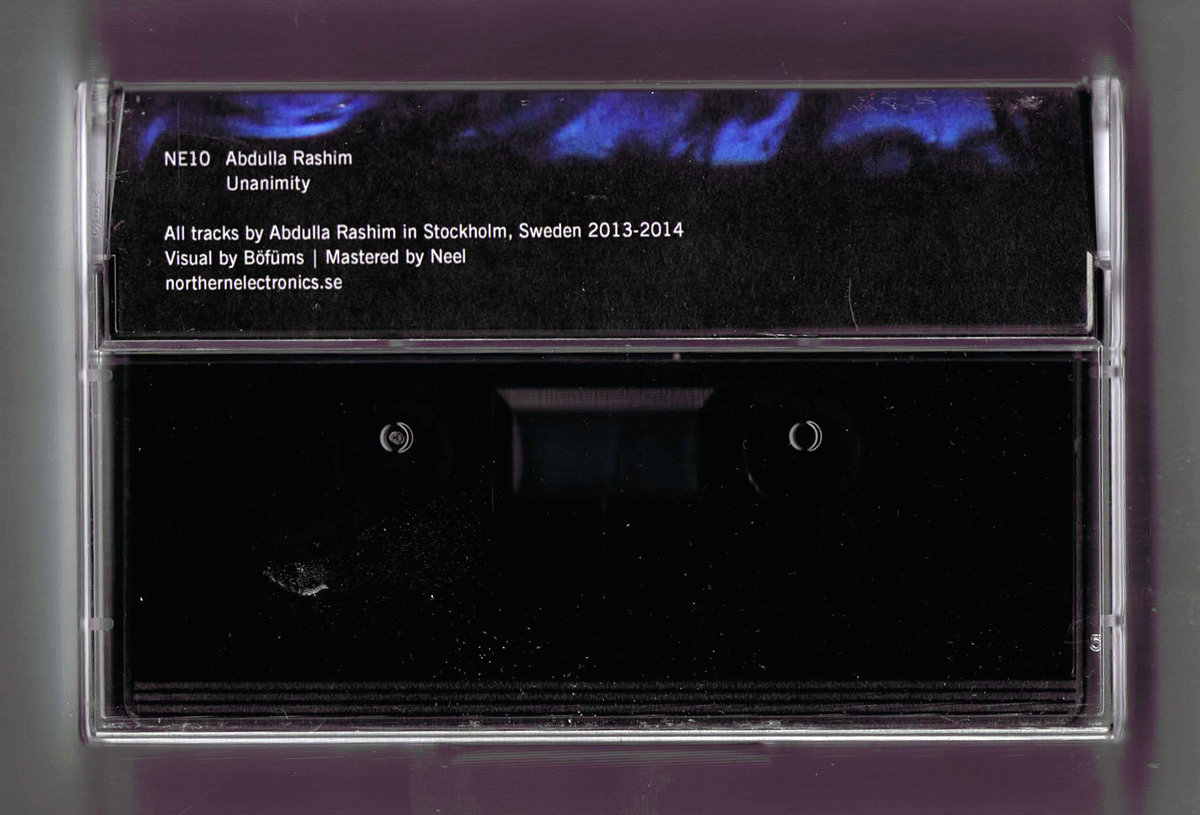
Do you think you’re inspired, or have been inspired, by Arabic music?
Well, not the music entirely. Of course I listen to some Arabic music, if you could call it that, like music from North Africa, or the Middle East. But I wouldn’t say the music that I make is inspired by that. If you mean traditional Arabic music, from like Tunisia or Egypt, then I would say no.
What was the first group that drew you into electronic music?
I don’t really remember. My friends and I were listening to Ed Banger and all that stuff. I had friends who had been to Berlin and some people who played records, and they were playing some of that Ed Banger stuff, but at the same time they would play less obvious music too. So at some point, I just got dragged into all of it.
Were those friends the catalyst for you to start diving in and making your own music too?
Not really. In the beginning, I never imagined myself doing music, I was more interested in the programming and the finding of sounds. I downloaded a program and started fiddling around with it, just making music and sounds.
So it was more the exploration of sound rather than making music specifically?
Yeah definitely. I don’t know anything about music, or at least I didn’t. I never had it at home and I was never interested in playing instruments or anything like that. It was more like playing a video game.
Do you remember what program it was?
Fruity Loops.
Were your peers making music at that time too?
No, nobody really. At that time, not many of my friends were doing anything related to music. I had one friend actually who was really talented and could’ve gone far, but he lacked moral and it always seemed like his computer crashed, or someone stole his hard drive, or something along those lines—but I remember he was doing some really cool stuff at that age and without any previous experience. Most people I knew were just playing records and I wasn’t really interested in that. I wasn’t sending any of the stuff I was making to anyone either.
Were you making actual tracks? Or was it just experimenting and exploring sound?
No, I made some tracks. I still have some on my hard drive actually, it wasn’t that long ago. The tracks have some structure to them, but they are all really bad. Although, I think I was always interested in reaching some kind of goal rather than just fucking around.
What was that goal? Was it clear to you that you wanted to do music full time at that point?
To put out a record, at first. And then it became something manic where I just wanted to do more and more. It’s still like that, although now I’m trying to control myself more.
Control the amount of releases? Or time actually creating music?
Since I started Northern Electronics, that has taken up a lot of time. So I believe a lot of that time I had before to do my own stuff is been taken up by the running the label. I guess that’s why I’m not as prolific as I was before; although I still have all these other projects that I work with, like Lundin Oil and with Varg as Ulwhednar. So I guess it’s still a lot, but it doesn’t feel like quite as much. What I mean is, you have to always keep up a high level of quality control for yourself. I don’t want to ever repeat myself, you know? Sure it happens, I guess, but at least I try to not do that. I definitely keep that in mind a lot when I am making music now.
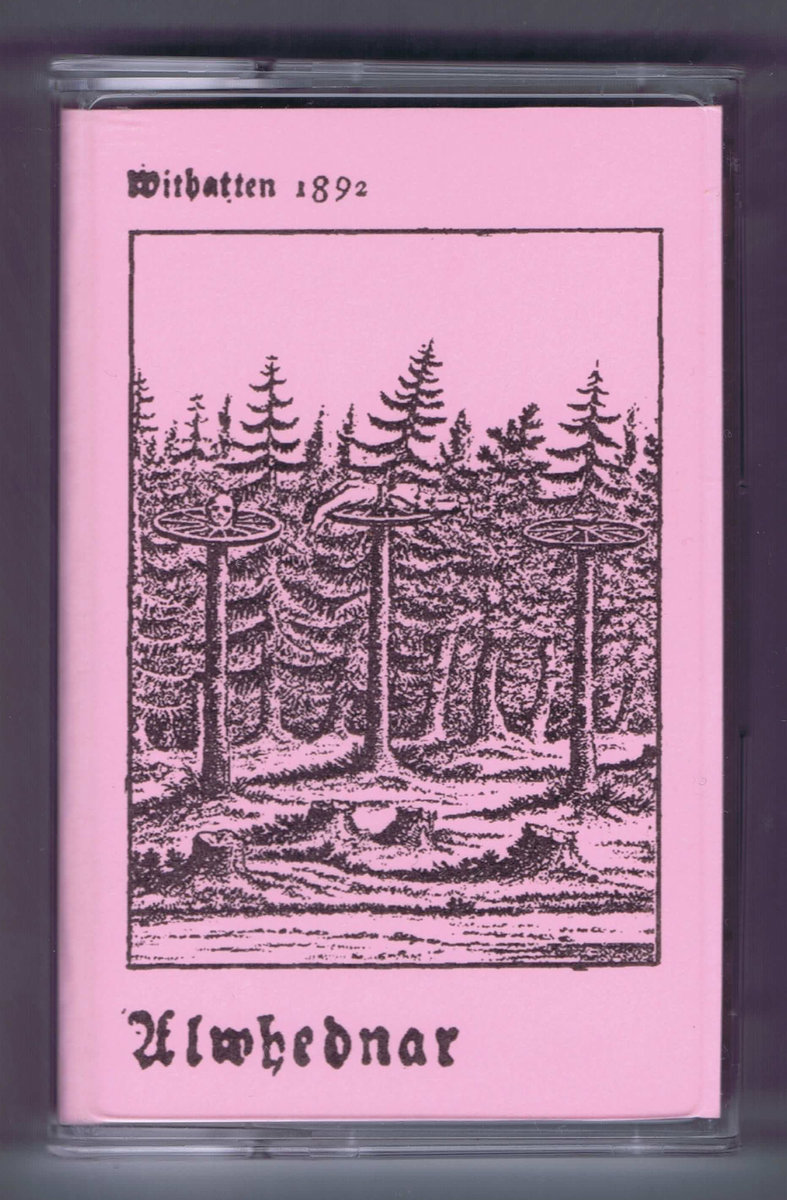
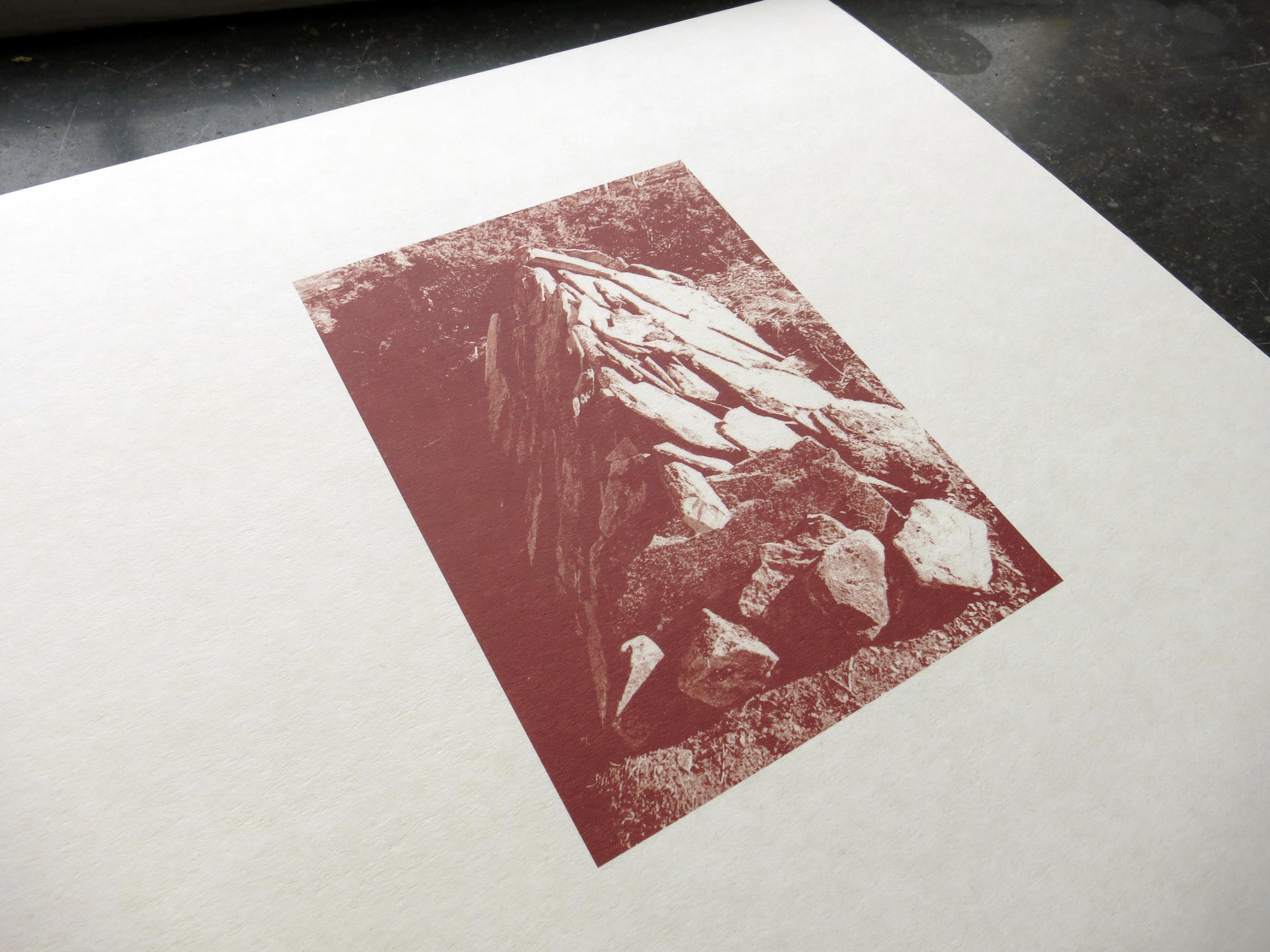
When was it when you first thought that your tracks were good enough to send out? And when did you start gravitating towards like-minded artists?
Well, I didn’t have many people around me that were making this type of music, so I can’t really remember who I was sending it to. I certainly had friends who I sent stuff to, but they thought it was crap, because it was. I did record some stuff with friends, but none of that was any good either. It was mainly something that I did just for myself.
“..at some point I thought, “Ok, I have to do a record.” I had a few tracks that were ok and I just decided to put it out!”
Was it your main creative outlet at the time?
It was just something that was really fun to do and I enjoyed it, so I kept at it.
How long after that was it that you released something?
I don’t really remember it all because those first few years kinda just flowed into each other. But I remember that at some point I thought, “Ok, I have to do a record.” I had a few tracks that were ok and I just decided to put it out!
So that’s when you started your label and it all took off from there?
Yeah, exactly.
Do you think starting your label and releasing that first music is what started the relationship with Prologue and Semantica?
I guess so. The Prologue thing came about because I made some friends who were working with Prologue, and Tom Bonaty (the label head) found out what I did and he asked me for a record.
What about Studio Barnhaus?
The person I know best there is Kornél Kovács. He’s always had a good local profile, I remember seeing him play before I had ever touched a turntable. Even at that point, like eight years ago, it always felt like he was a big local DJ. Then we met and started to work together because he used to run the bookings for a club in Stockholm and me and some friends had some nights there. It was a pretty small scene at that time, so everyone kind of knew everyone. I really like what they are doing, and as people, and it’s fun to work with someone you get along with in person, rather than someone that’s close to your kind of music but you don’t have any connection with.
Was it around this time that you met Varg?
I can’t really remember the first time I met him, but he claims it was a time when he came down to visit Stockholm—because he was living up north—and one time he says we met randomly at some park. Apparently I had offered him some cough medicine to drink and then we started hanging out.
Was he making music at the time?
He was actually making dubstep. I thought it was really good at the time, but looking back it was generic Benga dubstep type stuff.
So how did you come to start Northern Electronics with him?
Even from the first release on Abdulla Rashim Records, I really wanted to create an outlet for my friends—although, at that point, I didn’t have that many friends who were making the type of music that I liked. I remember I was recording some stuff with Axel Hallqvist and I always had in my mind that I wanted to put out stuff from others on Abdulla Rashim Records, or at least I did at the beginning, but then I realised that nothing would ever fit there that I hadn’t done myself. So it took some time to realise how I wanted it to be, and in the beginning I didn’t have any big plans, I just knew that Jonas (Varg) had been making some recordings that were a bit more interesting than his previous dubstep stuff. He didn’t know anything about techno or electronic music but he managed to find a really good price on a bunch of classic electronic instruments and started to record. He sent some stuff to me and I liked it, so I asked him for an EP and we sat together and finished it off and rearranged and fixed some stuff—because he didn’t know anything about computers or how to properly record. It was long takes and I had to cut the music for him and help finish what he had recorded. We just did it together.
Were you using much hardware at that time?
Yeah, I’ve always been interested in hardware because it gives you a lot soundwise. I don’t remember everything I was using at that point, but the x0xb0x TB-303 clone was probably the main instrument back then. I’ve always been buying crappy stuff just to get some artefacts in the sounds, because everything from the computer is so clean. It just makes things more interesting for myself.
Would you just teach yourself how to use it?
Yes, maybe with some good YouTube tutorials.
So how did you meet the rest of the Northern Electronics artists? It seems like you’ve got a healthy scene in Stockholm and Northern Electronics appears to act as the hub for everything.
Acronym was kinda of the same story: I knew him before the music and then one day he started sending me stuff. From the beginning his music was really good and I was impressed by what he was doing. He was already putting out stuff before he released on Northern Electronics, he even had his own label. So I just asked him to record something for me and he sent me “River Red Gum.” Korridor I got to know through the internet, he was living in Stockholm but we never met before I started doing music. Everybody on the label is in some way connected to friends.
Were you all playing out together at the time? Or jamming?
Not as much as we do nowadays. We played shows together but not very often. None of us even record much together—except me and Varg, because we’ve always done a lot of work together. Even before Northern Electronics we worked together. But in regards to the rest of the label, we don’t really play that much together, unless we are invited to do a label showcase or something like that.
Northern Electronics has a very distinct visual identity. Was that the intention from the start, or did that also just happen naturally?
I have a close friend Jonas Bard (Böfüms) who is a graphic designer, and he helped me out with one of the records on Abdulla Rashim Records—but I didn’t want to bother him that much at the time. When I started Northern Electronics, I asked him if he was up for doing the artwork—he is a very talented guy and he understood the music and where we were coming from. I basically gave him free reign for what he wanted to do and he came up with the visual identity.
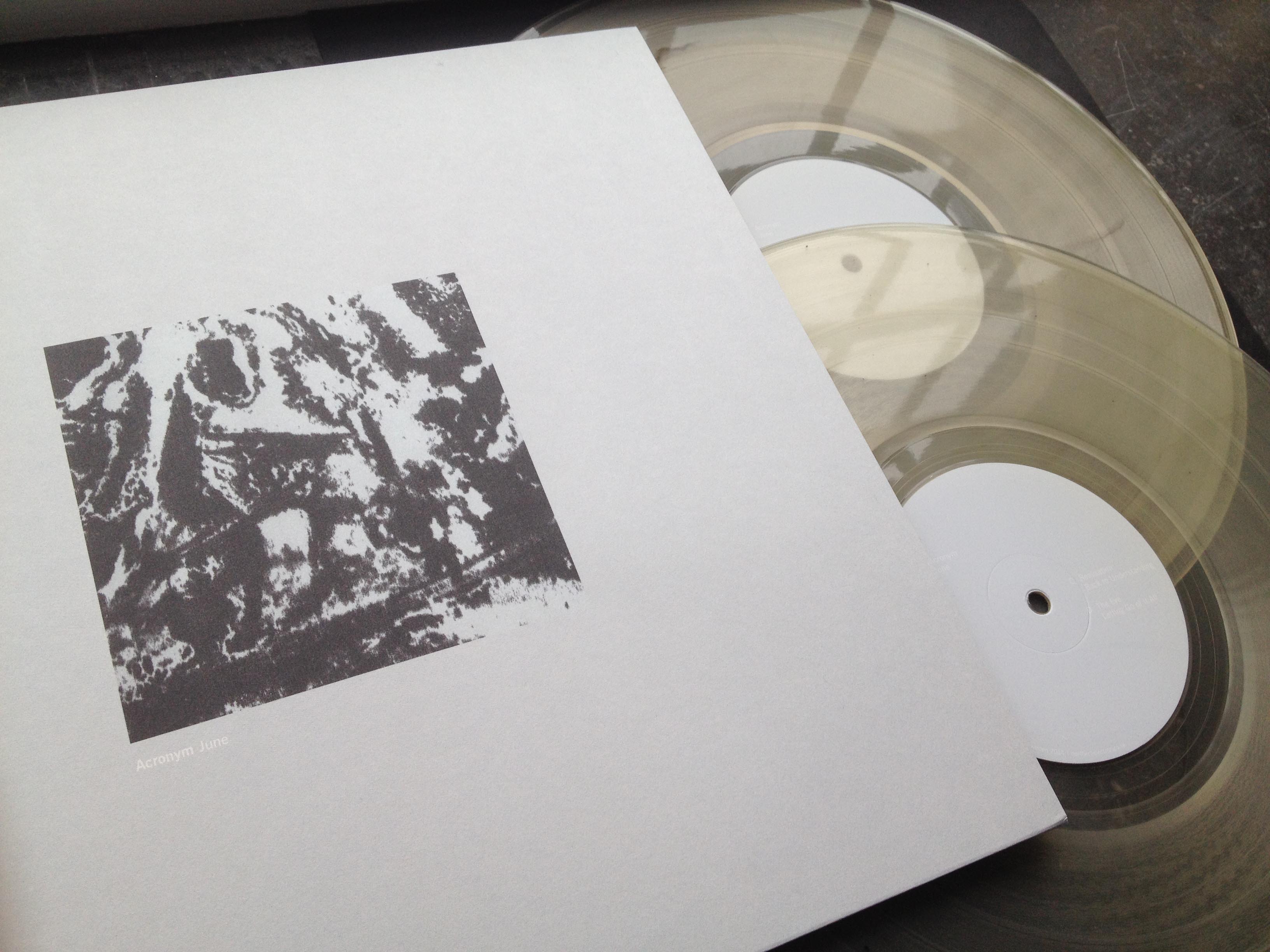
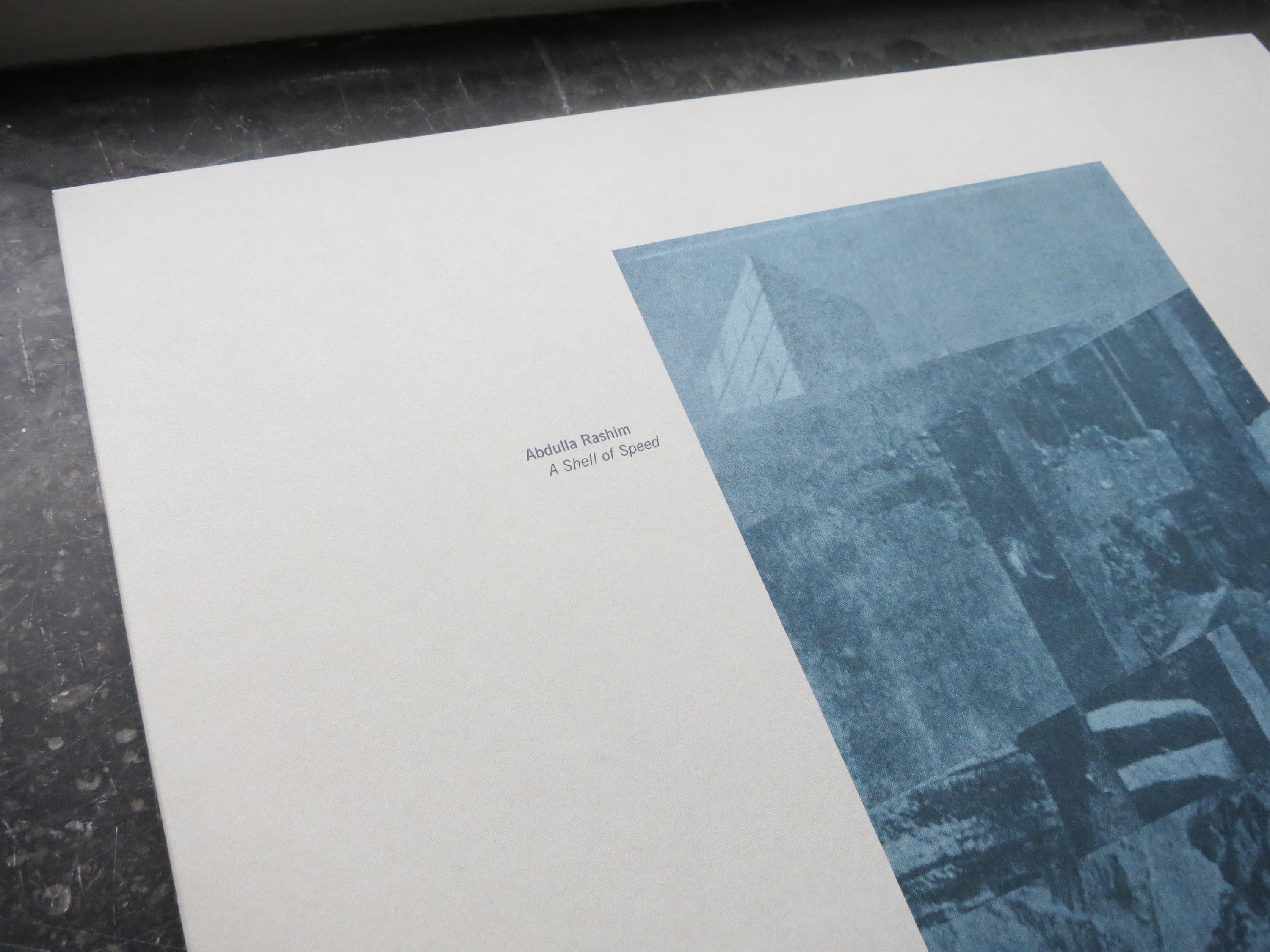
All of your music and the music on Northern Electronics seems to have a strong visual concept attached it it. Does the music come first, or do you have a distinct idea in mind beforehand?
Well, it depends. For me, at least, it’s very important, but the concept usually comes when the music is finished. For the others, they sometimes have strong ideas about how they want to package it. I don’t write music for some artwork, it all comes after. But it is very important. Normally I can’t say what I want it to look like beforehand though.
Do you discuss the concepts with those other artists beforehand to guide what ends up on the label?
Well, I usually just give Jonas (Böfüms) our designer free reign. Sometimes I would come with a half-assed sketch and have him do it the proper way. There’s always ideas floating around between us even though there might not be a specific release planned, be it a colour, pictures, shapes etc.
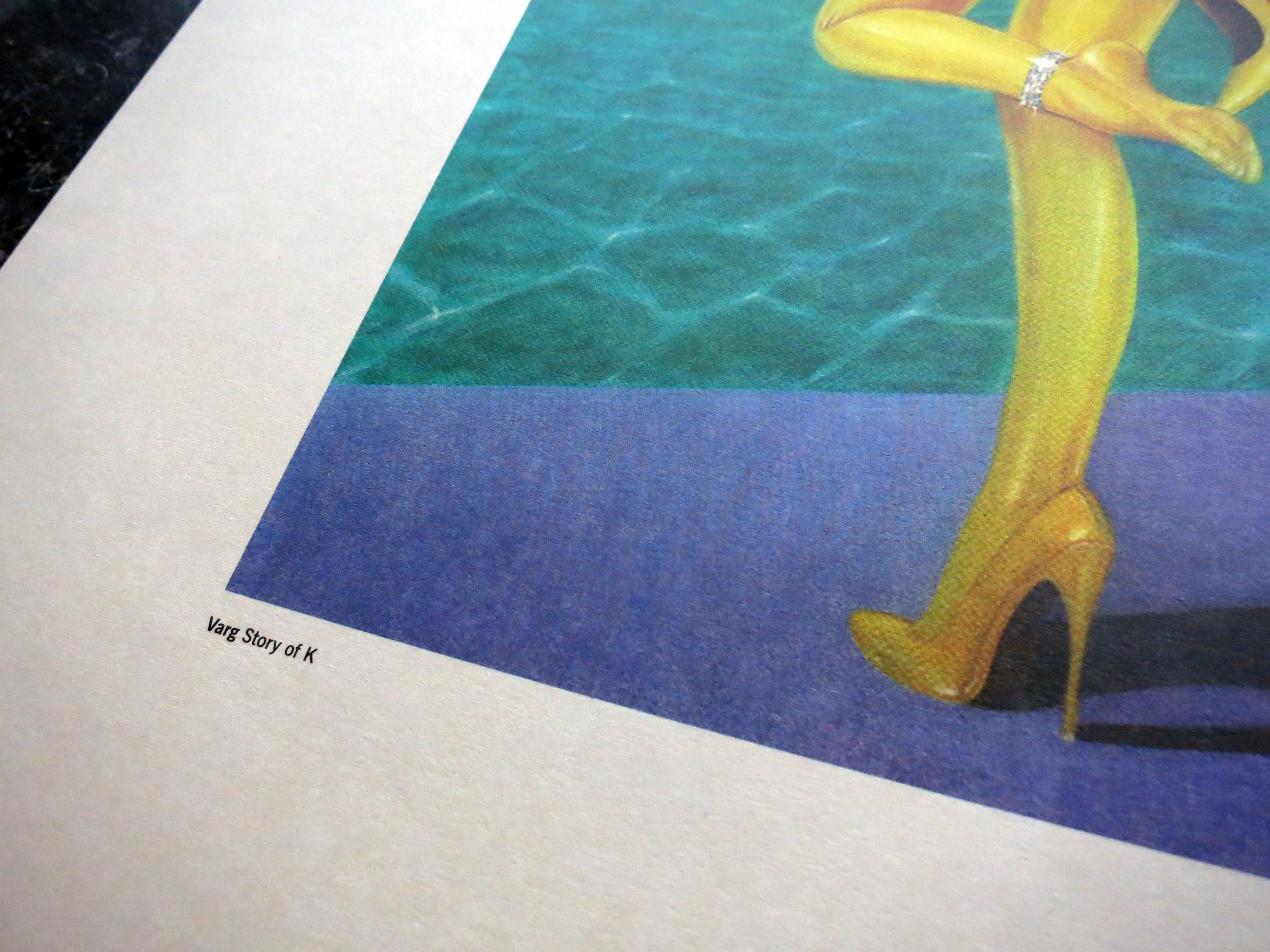
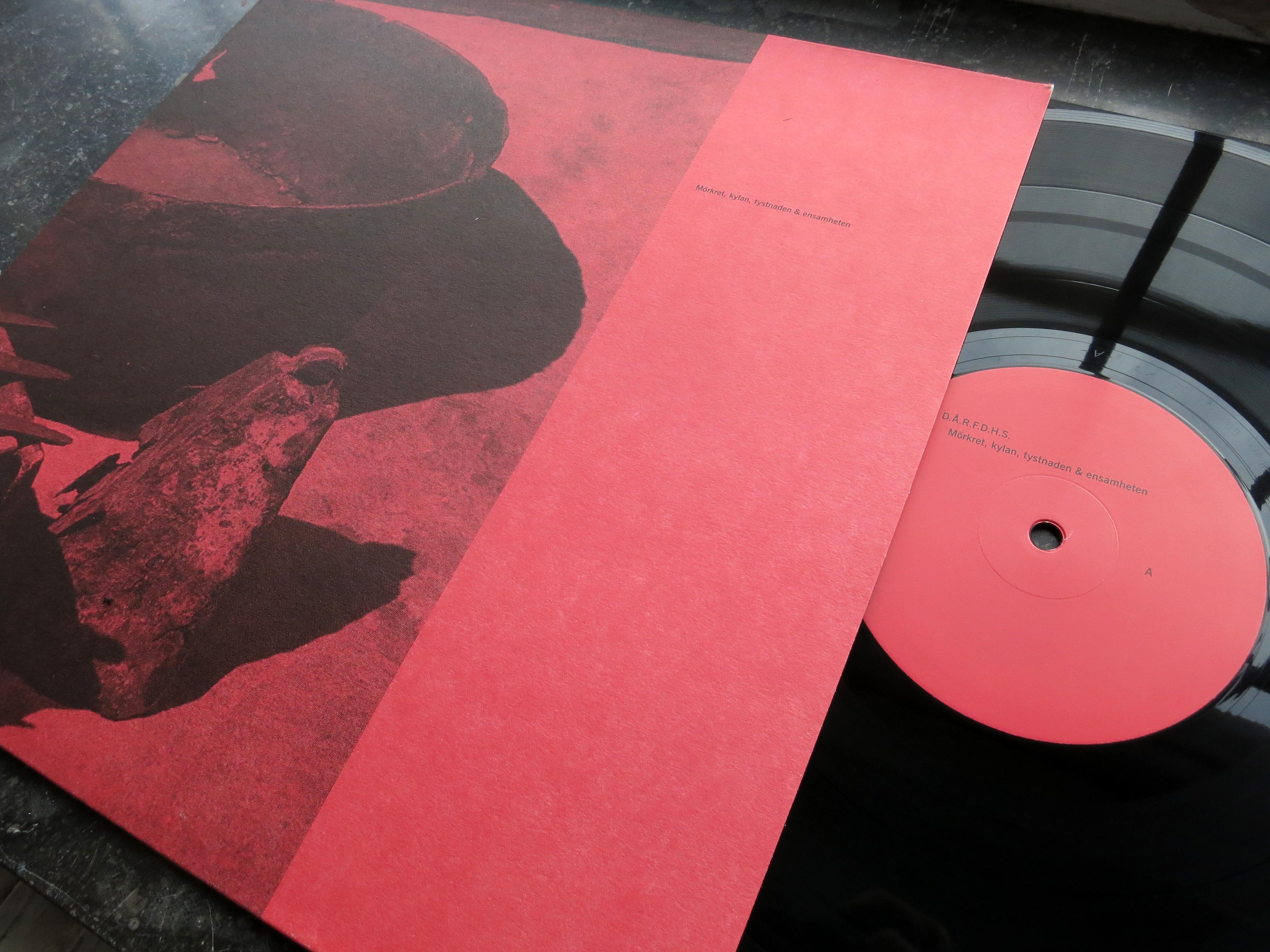
Has it always been the focus to release music from Scandinavian and Nordic artists?
For me it is always important to work with people that I like, and that’s why it’s only friends on the label; nationality is not of any importance but naturally they’ll mostly be Swedes. Neel from Rome is finally contributing with a track for our 30th release, so he’ll be the first non-Scandinavian.
What kind of influence do you think growing up there has had on you and your music?
Sweden is a very isolated place, very melancholic and beautiful, which has made me more comfortable with living and working. There are no disturbing elements; you can go on with your life without having to meet anyone for days if you don’t want to. I couldn’t imagine living anywhere else.
Do you perceive your music as melancholic and beautiful?
If I compare it to something else, then it might be. That kind of music influences me a lot. But as far as saying what I sound like, I wouldn’t know.
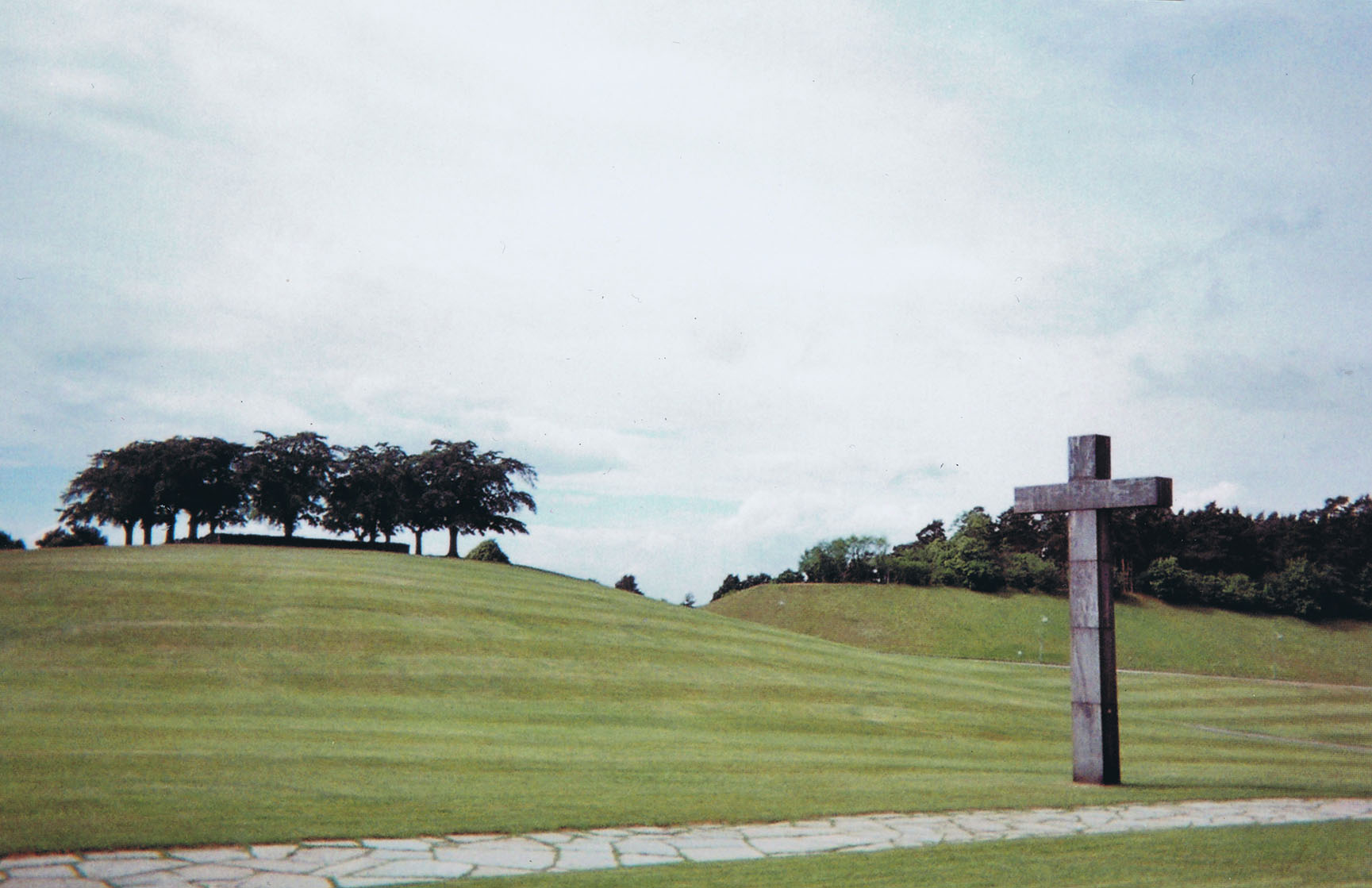
“Dark” has been used quite a lot to describe your music, and a lot of techno for that matter. Do you think this is a fair description?
I never really like the term “dark” for what I do. Of course, it’s not happy music, but I don’t think dark is necessarily the opposite of that. I wouldn’t agree with the term “dark,” but I do understand what people mean when they describe it like that.
Do you see your music as a direct outlet for emotions and things happening in your life?
Everything you do is somehow a reflection of life or previous experiences, so yes it is. But it’s also something that can work as an outlet for things that cannot be expressed with words or visual art.
Do you think or wonder what emotions your music is bringing up in listeners? Or how it might make them feel?
No, I don’t really think about that. Everything can be perceived very differently depending on the situation or mindset that the listener is in, so it could be anything.
“The most important thing I work with is effects and treating the sounds after they have been recorded.”
What’s your current studio setup at the moment?
The thing I use the most is probably the EMS synthi that I got a year ago, a Waldorf Microwave XT, Orgon Enigiser, Juno-1, and some small modular stuff—but I don’t have that big of a studio really. My friends have most of the classic Roland and Korg machines, but I don’t have any of them. The most important thing I work with is effects and treating the sounds after they have been recorded.
What are the specific VSTs or plug-ins you’re using for that?
I mostly use native Ableton plug-ins, but I try and experiment with everything. There’s also some good max plug-ins, but the VST side of things has always bored me. Once in awhile, I’ll find something that really piques my interest, but I think it’s not what you use, but how you use it and the result you get.
Do you share gear and studio space with the other artists on Northern Electronics?
No, I share my studio space with Art Alfie. It used to be with Mr. Tophat too, but he moved out recently. I don’t borrow gear from others very often but sure it happens, mostly it’s Varg who’s found something new and comes over to the studio to show it out.
Do you share ideas and thoughts about music with Art Alfie?
Yes, most definitely. Even though we make what seems like different stuff, me and the other guys on the label have always had a good exchange with him and Mr. Tophat. They’re kind of working in the same field when it comes to the club part of music, but they do it their way. They are also into doing weirder stuff. I really appreciate their work.
What about your current live setup?
It’s very basic. I have an Octatrack, a drum machine, a small synth or two, and effects—it depends on what I’ve been feeling like using lately.
Do you run that through pedals? Your music has a very atmospheric feel to it.
When I play live it’s mostly samples from the Octatrack, all pre-recorded. A lot of that stuff is from treating the sound and making it in the studio. If I was to do it live, I would have to bring a crazy amount of gear. Some people can do it really well, like Jonas (Varg).
Do you approach the live set with a specific narrative planned? Or is a lot left to improvisation?
Although there are pre-recorded parts, I never have a set list that I follow. I bind together those parts in the way it seems suitable for the moment and add some stuff on top and in between.
Would you consider yourself a DJ or live performer? Or a mixture of both?
I never wanted to be a DJ and I never saw myself as one. I love to collect records and I love to play those records out, but being a DJ, for me, is someone like Kornél Kovács or Henrik Berqvist. Those two guys have always been what I would consider real DJs. They love playing records and they know it very well—and they think a lot about it too. Especially Henrik, as long as I’ve known him, which is around seven years now, he’s always had it on his mind. He’s a real DJ in that sense. Me, I just play records. For me, a DJ is something else, someone that is really into the whole art form of doing it. That’s never been my biggest interest. I’ve always been more into sounds and creating sounds. I think there’s a difference between a “DJ” and a real DJ. There are not very many real DJs I would say.
Support Independent Media
Music, in-depth features, artist content (sample packs, project files, mix downloads), news, and art, for only $3.99/month.

